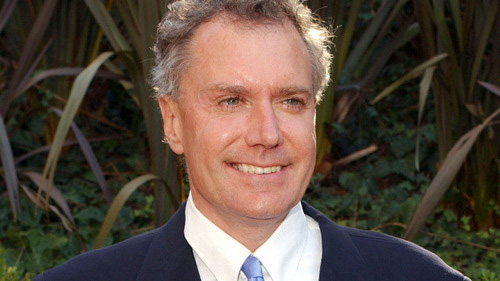
A former Canadian diplomat with a career in foreign service that spanned over 30 years, Colin Robertson is a Senior Advisor to Dentons LLP living in Ottawa, Canada and working with the Canadian Council of Chief Executives. He is Vice President and Fellow at the Canadian Global Affairs Institute and Executive Fellow at the University of Calgary’s School of Public Policy. Roberston is a Distinguished Senior Fellow at the Norman Paterson School of International Affairs at Carleton University and chair of the board of Canada World Youth. A commentator on international affairs, Robertson writes a column every two weeks on foreign affairs for the Globe and Mail and he is a regular contributor to other media.
Colin Robertson will speak at the upcoming conference, Canada on the Global Stage, hosted by the McGill Institute for the Study of Canada (MISC). Feb. 11-12, Hotel Sofitel Montreal, 1155 Sherbrooke Street West, Montreal. Get more information.
Tell us a little about your background and how it has led you to be interested in issues concerning Canada’s place in the world, and specifically, Canada’s image, brand and reputation.
I grew up in Winnipeg. It was multicultural, internationalist and focussed on trade. One grandfather worked for Swifts meatpacking and the other for Ogilvie Flour Mills so I was conscious of the importance of trade. It put bread and meat on the family table. My father worked for CBC (he produced the supper hour show) and he would bring home guests, mostly in the entertainment business, who had travelled the world and told me of faraway places and peoples.
I learned how to play chess from a Holocaust survivor. Our neighbourhood included many who had come to Canada after the Second World War. My father and his brother had served in the RCAF. Several of my grandmother’s bridge partners had lost husbands when Hong Kong fell in December 1941. My other grandmother had lost brothers in the First World War. I was conscious of the cost of war and the impact of international affairs on ordinary people.
During first year at university, I read Siren Years the memoir of a Canadian diplomat, Charles Ritchie (whom I would later meet after I joined the Foreign Service). Set in London during the Blitz he served with Lester Pearson, Vincent Massey and Georges Vanier. He served Canada and the work was exciting and the nightlife entertaining. I decided that this was the career for me.
As a former diplomat, what do you find has changed over the last few decades for Canadian diplomats and the relationships they have to foster around the world?
The biggest changes are technological. When I joined we would dictate our dispatches to a secretary who would transcribe them and give them back to us for editing. Fortunately, I’d learned how to type as within a few years we were doing all our dispatches ourselves. Cheap telecommunications meant that where once we had to seek permission to make a long distance call, now we called anywhere in the world. While communications are now instant, they come at a price. We once had time for reflection; less so today. As well, with instant communications, decisions and dialogue with foreign interlocutors are increasingly made and conducted from Ottawa meaning that there is less input from our people in the field.
The other big difference is cultural. The Foreign Service I joined was not all that different from the environment portrayed in ‘Mad Men’. It was politically incorrect by today’s standards but it was lots of fun.
What will be Canada’s primary challenges in defining itself over the next five years?
The first challenge is existential what with climate change, cyber threats, and terrorism, home-grown and abroad. We are a comfortable people living in a very comfortable country but we are not ‘fire-proof.’ We must contribute and, where we can, lead in finding solutions or temporary fixes to problems.
The second challenge is continuing to build a strong Canada – it means opening our doors to trade and, given our demographics, more people. We are competitive but we can be more so. There is sometimes a tendency to settle for bronze when we should go for gold. We do pluralism better than anyone else with lessons for the rest of the world, but it is a constant work in progress.
What do you think should be Canada’s image, brand and reputation in today’s world?
Practical problem-solvers who get the job done and who have created a pluralistic society that is the envy of the world, as long as we keep working at it. In diplomacy this means not just pursuing our own economic goals, but an emphasis on multilateralism and reinforcing the norms of liberal internationalism. This is what makes possible the free movement of people and goods, which in turn creates the prosperity that pays for our health care and education, and the things that define what it is to be Canadian. A key tool to getting the job done is a first-class diplomatic service trusted by the leadership – prime minister and premiers, business and civil society – of our country.
